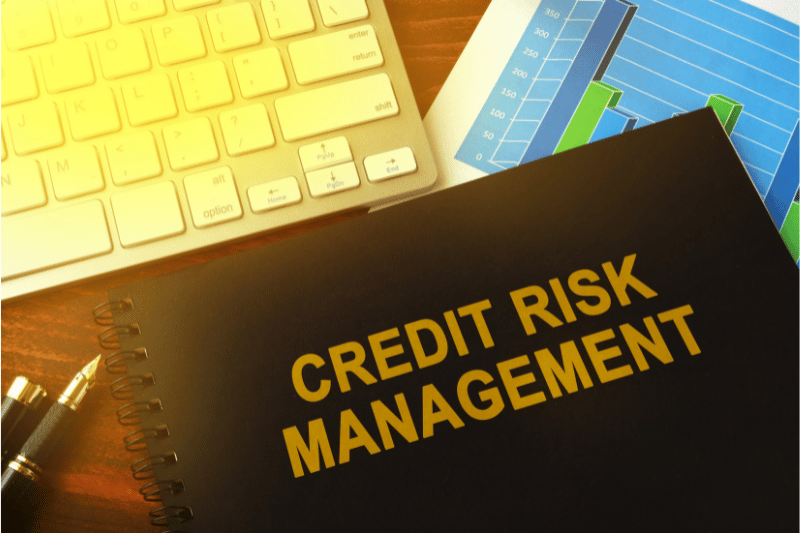At CreditGUARD, we acknowledge the immense significance of your credit score in your financial journey. This three-digit number is more than just a number—it's a summary of your creditworthiness, a figure that lenders, landlords, employers, and even insurance companies use to gauge your financial reliability. It's crucial to note that a higher credit score can yield benefits like [lower interest rates](https://www.myfico.com/credit-education/credit-scores/interest-rates) and [better terms on loans and credit cards](https://www.experian.com/blogs/ask-experian/why-do-good-credit-scores-get-better-rates/). On the contrary, a lower credit score can hinder your chances of obtaining loans, renting houses, or even landing certain jobs. Therefore, effectively managing your credit score is not merely advisable—it's essential for your overall financial prosperity.
This CreditGUARD roadmap serves as your holistic guide to mastering and enhancing your credit score. Here, we aim to demystify credit-related concepts, simplify complex terms, and provide actionable strategies to help boost your credit score. However, it's important to remember that improving your credit score is a journey—it doesn't happen overnight. Instead, it requires consistent effort, strategic financial decisions, and, most importantly, a comprehensive understanding of the credit scoring system.

The credit scoring system is at the crux of credit management. It's a standardized method lenders use to evaluate the risk associated with extending you credit. As a CreditGUARD reader, we believe it's crucial that you understand how this system works. Armed with this knowledge, you can make informed decisions and effectively navigate your way through the credit landscape. This guide will explain the components of this system, shedding light on the credit scoring models, factors influencing your credit score, and the weightage of each factor.
Credit scores are numerical representations of your creditworthiness, derived from your financial history. Credit bureaus like [Equifax](https://www.equifax.com/personal/), [Experian](https://www.experian.com/), and [TransUnion](https://www.transunion.com/) collect this data to calculate your credit score. This score is then used by lenders to determine whether to extend you credit, and on what terms. But what goes into this score? How is it calculated? And, most importantly, how can you improve it? The answers to these questions are integral to managing your credit effectively.
FICO and VantageScore are the two major credit scoring models in the industry. While they may use different calculations and have different score ranges, their ultimate goal is the same—to predict your credit risk. In this section, we will delve into these models, comparing their methods, score ranges, and the factors they consider. We will also explain how these models influence your credit score, helping you understand how your financial actions can impact your score.
Your credit score isn't a random number—it's a calculated measure influenced by various aspects of your financial behavior. Understanding these factors is key to effectively managing and improving your score.
This refers to your track record of making timely payments. Since lenders want to ensure they’ll get their money back, they consider this a crucial factor in calculating your credit score.
This ratio represents how much of your available credit you’re using. A lower ratio is seen as a positive sign, indicating that you’re managing your credit well.
This represents how long you’ve been borrowing. A longer credit history can reflect more experience managing credit, which can be seen as a positive sign by lenders.
This refers to the different types of credit you have. A mix of credit types can show lenders that you can handle various types of credit responsibly.
These occur every time you apply for new credit. Each application can temporarily ding your credit score, so it’s important to apply for new credit sparingly.
Not all credit score factors are created equal—some hold more weight in the scoring calculation than others. Understanding these weights can help you focus your efforts on the areas that will have the most significant impact on your score. We'll provide a breakdown of these weights, giving you a clear understanding of what to prioritize in your credit improvement journey.
Debt consolidation involves merging multiple debts into a single, manageable payment. This simplifies your financial obligations and allows for easier tracking and repayment. CreditGUARD streamlines the debt consolidation process by negotiating with your creditors on your behalf, aiming to reduce interest rates, eliminate late fees, and potentially negotiate a reduction in the overall amount owed.
Thanks to the Fair Credit Reporting Act (FCRA), you have the right to request a free credit report from each of the major credit bureaus once every 12 months.
Here's how you can obtain your free credit report:
Equifax, Experian, and TransUnion are the three major credit bureaus responsible for collecting and maintaining credit information. Each bureau generates a credit report that provides a detailed account of your credit history. These reports serve as a valuable tool for evaluating your current credit status. By reviewing them, you can identify any discrepancies, errors, or negative entries that may be impacting your credit score.
- [Equifax](https://www.equifax.com/personal/) - [Experian](https://www.experian.com/) - [TransUnion](https://www.transunion.com/)
To request a free credit report, follow these steps to ensure accuracy and keep track of your credit status without any additional cost:
1. Visit the official website AnnualCreditReport.com, which is the only authorized source for free credit reports.
2. Choose your preferred credit bureau from Equifax, Experian, or TransUnion.
3. Provide the necessary personal information, including your name, address, Social Security number, and date of birth.
4. Verify your identity through a series of security questions.
5. Select the type of report you want to receive, such as a credit report only or a credit report with a credit score.
6. Review your credit report thoroughly, paying close attention to any errors, negative entries, or unfamiliar accounts.
By obtaining and reviewing your free credit reports from each of the major credit bureaus, you can stay informed about your credit status and take appropriate actions to improve your credit health. Remember to check your reports regularly to track your progress and ensure the accuracy of the information provided. Please note that while obtaining a free credit report is a valuable step in credit evaluation, it does not include your credit score. If you want to access your credit score, there may be additional fees associated with the service, or you can consider using other free credit score services available online.
Equifax, Experian, and TransUnion are the three major credit bureaus that compile and maintain your credit information. These bureaus play a vital role in your credit life by producing credit reports that provide a detailed account of your credit history. Understanding how these bureaus operate can help you navigate the credit landscape more effectively.
Equifax, Experian, and TransUnion are the three major credit bureaus that compile and maintain your credit information. These bureaus play a vital role in your credit life by producing credit reports that provide a detailed account of your credit history. Understanding how these bureaus operate can help you navigate the credit landscape more effectively.
- [Equifax](https://www.equifax.com/personal/) - [Experian](https://www.experian.com/) - [TransUnion](https://www.transunion.com/)
Non-profit credit management refers to the services provided by organizations that are dedicated to helping individuals manage and overcome debt without profit motives. These organizations offer debt consolidation, negotiation with creditors, financial education, and counseling to empower individuals on their journey towards financial stability.
Non-profit credit management organizations prioritize the well-being of their clients over generating profits. Their services are often more affordable, and they typically offer personalized debt management plans tailored to individual needs. For-profit debt consolidation services may charge high fees or have hidden costs associated with their services.
Non-profit credit management organizations, such as CreditGUARD, provide comprehensive debt management services. They negotiate with creditors to potentially lower interest rates, consolidate multiple debts into a single payment, and create a structured plan to repay debts over time. These services can help individuals regain control of their finances and work towards becoming debt-free.
Yes, reputable non-profit credit management organizations have a proven track record of helping individuals achieve debt relief. It’s essential to research and choose a reputable organization like CreditGUARD that is accredited, has positive customer reviews, and adheres to industry standards and ethical practices.
Enrolling in a non-profit credit management program itself does not directly affect your credit score. However, it may temporarily impact your credit score if creditors report your accounts as being in a debt management program. Over time, as you make consistent payments, reduce debt, and demonstrate responsible financial behavior, your credit score can improve.
While enrolled in a non-profit credit management program, it is generally advised to refrain from using credit cards. However, the ultimate decision depends on your specific circumstances and the recommendations provided by the credit management organization. It’s important to discuss this with your credit counselor and follow their guidance.
The duration of a non-profit credit management program varies based on individual circumstances, the amount of debt, and the ability to make consistent payments. On average, debt management programs typically last between three to five years. The timeline can be shorter or longer depending on your specific situation.
Once you enroll in a non-profit credit management program, your creditors should direct their collection efforts to CreditGUARD or the credit management organization you are working with. However, it is crucial to notify the organization if you continue to receive collection calls to ensure proper communication with your creditors.
Yes, you can pay off your debts early while on a non-profit credit management program. Many credit management organizations encourage individuals to make additional payments if they have the means to do so. Early debt repayment can help you become debt-free faster and potentially save on interest charges.
Yes, non-profit credit management programs often include financial education and counseling as an integral part of their services. Credit management organizations provide resources, educational materials, and personalized counseling sessions to help individuals develop sound financial habits, budgeting skills, and long-term financial planning strategies.
By providing your information, you consent and request to be contacted by CreditGuard and/or our member(s) to your phone, cell phone, email, text/SMS, and through the use of pre-recorded messages and automated dialing technology at the number(s) listed above even if your number provided on the form above is on a State, National or Corporate Do Not Call List. You are not required to purchase any goods and/or services. Standard carrier and messaging rates will apply.

CreditGuard has been providing Debt Management, Debt Counseling and Financial Education for consumers for the past 31 years. We help consumers lower or eliminate their interest by up to 50%, stop late fees and re-age their accounts to bring them current. We help consolidate the debt into one low affordable monthly payment.
Reputable and established Debt Counseling Company operating since 1991, licensed in all 50 states. Currently located in Fort Lauderdale, Florida.
Input your search keywords and press Enter.